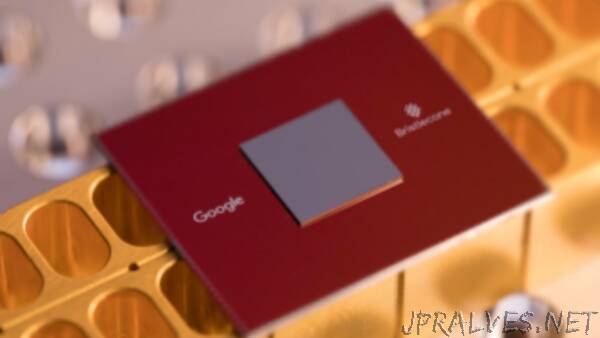
“A Google researcher’s paper claiming to have achieved quantum supremacy, a major early milestone in the field of quantum computing, appeared on a NASA website this week before being removed, the Financial Times reports.
Google, as well as IBM, Microsoft, Intel, and other large tech companies and startups, have been working to build quantum computers, a new kind of computer based on an entirely different architecture than classical computers. Though this announcement is not official, scientists and industry experts have long expected Google to build a quantum computer capable of reaching this milestone—a quantum computer performing a calculation that a classical computer can’t.
You can read our primer on quantum computers here and our primer on quantum supremacy here. But the gist is, classical computers are systems where problems are abstracted onto a system of two-position switches called bits (ones and zeros) that interact through the rules of logic. Quantum computers are instead based on quantum bits, or qubits, that are also two-position switches, but they interact via the same rules that subatomic particles follow, called quantum mechanics.
This quantum architecture purportedly could allow quantum computers to solve a set of problems that classical computers can’t in a reasonable amount of time—this includes problems in cryptography as well as modeling molecules. But the difficulty maintaining qubits’ quantum behavior for a usable amount of time, also called the coherence time, has prevented researchers from demonstrating any sort of quantum speedup.
The Financial Times reports that they saw a Google publication claiming that the company’s quantum processor can perform a calculation “in three minutes and 20 seconds that would take today’s most advanced classical computer, known as Summit, approximately 10,000 years”—a demonstration of quantum supremacy. Google has not yet responded to a Gizmodo request for comment, and it has long been cagey about when and how it’d make the announcement.
We don’t have many details as to what calculation the computer performed, nor can we independently verify the Financial Times report. But previous proposals essentially involve the quantum computer racing a classical computer simulating a random quantum circuit. The achievement would not be a surprise—we’ve long known that Google has been testing a 72-qubit device called Bristlecone with which it hoped to achieve quantum supremacy. Financial Times reports that the supremacy experiment was instead performed with a 53-qubit processor codenamed Sycamore.
This would be a major early milestone when it comes to comparing these quantum devices against classical computers. But we’re a long way off before quantum computers actually demonstrate quantum usefulness. That would require increasing the coherence time and introducing error correction schemes‚ those where multiple qubits are combined into one in order to ensure that the quantum computer outputs the answers it’s supposed to output.
“Google’s recent update on the achievement of quantum supremacy is a notable mile marker as we continue to advance the potential of quantum computing. Achieving a commercially viable quantum computer will require advancements across a number of pillars of the technology stack,” James Clarke, Director of Quantum Hardware at Intel, told Gizmodo in an email.
It’s possible scientists may not even accept Google’s announcement as valid. Most importantly, if it takes 10,000 years for a supercomputer to check the answer a quantum computer produced, how do you know that the quantum computer got the answer right in the first place?
We’ll keep you posted as we learn more about the reported paper.”
